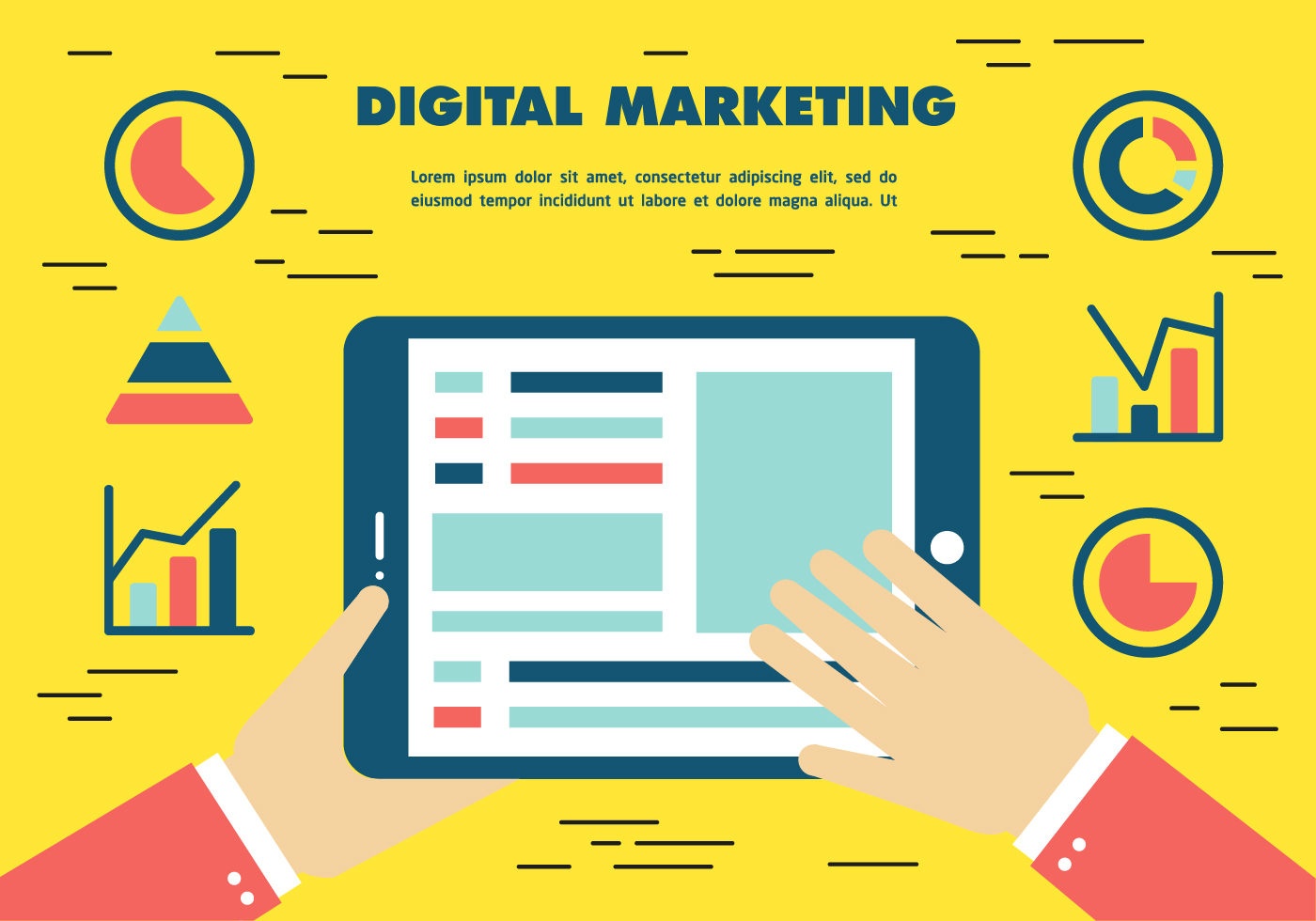Digital marketing has revolutionized the way businesses connect with their target audience. As technology continues to advance at a rapid pace, it is essential for companies to adapt and harness the power of digital platforms to effectively market their products and services. In today’s competitive landscape, understanding the fundamentals of digital marketing is no longer a choice but a requirement for success.

At its core, digital marketing encompasses a wide range of strategies and techniques aimed at promoting a brand or reaching potential customers through various online channels. From search engine optimization (SEO) to social media marketing, content creation, email campaigns, and more, the possibilities are diverse and ever-evolving. The sheer amount of information available can be overwhelming, but fear not! This ultimate guide is here to provide you with the knowledge and tools to confidently navigate the digital marketing landscape.
Whether you are a novice just dipping your toes into the digital marketing waters, or a seasoned professional looking to enhance your existing strategies, this guide will equip you with the essentials. We will explore the key concepts, best practices, and industry insights that will empower you to maximize your online presence and drive tangible results. So let’s dive deep into the realm of digital marketing and unlock its vast potential together!
Understanding the Basics of Digital Marketing
Digital marketing is a powerful tool that has revolutionized the way businesses reach and engage with their audience. In today’s digital age, it is crucial for companies to have a strong online presence in order to stay competitive. But what exactly is digital marketing?
At its core, digital marketing refers to the promotion of products, services, or brands using digital channels. These channels can include websites, social media platforms, search engines, email, and various other online platforms. Unlike traditional marketing methods, digital marketing allows companies to connect with their target audience in a more direct and personalized way.
One of the key advantages of digital marketing is its ability to reach a wider audience. With billions of people using the internet every day, businesses have the opportunity to reach potential customers from all around the world. Additionally, digital marketing provides the advantage of being trackable and measurable. Through analytics and data, companies can gain valuable insights into their audience’s behavior and preferences, allowing them to optimize their campaigns for better results.
Another important aspect of digital marketing is the concept of targeting. Unlike traditional advertising, which often casts a wide net in the hopes of reaching some interested individuals, digital marketing allows for precise targeting. By analyzing user data and demographics, businesses can create highly targeted campaigns that resonate with their ideal customers.
In summary, digital marketing is the use of digital channels to promote products, services, or brands. It offers businesses the ability to reach a wider audience, gain valuable insights, and tailor their marketing efforts to specific target groups. Understanding the basics of digital marketing is crucial for any business looking to thrive in today’s digital landscape.
Developing Effective Digital Marketing Strategies
In today’s digital landscape, having a well-defined marketing strategy is vital for businesses looking to thrive online. A successful digital marketing strategy encompasses a range of tactics that work together to drive brand awareness, generate leads, and increase customer conversion rates. By focusing on the following components, you can develop effective digital marketing strategies that deliver tangible results.
Identify Your Target Audience: Before diving into any marketing campaign, it’s crucial to clearly define your target audience. Understanding their demographics, preferences, and online behavior will help you tailor your digital marketing efforts to resonate with them effectively. By identifying your ideal customer persona, you can create targeted content and deliver it through the right channels.
Set Clear Objectives: Establishing clear objectives is key to measuring and evaluating the success of your digital marketing strategies. Whether your goal is to boost website traffic, increase sales, or enhance brand visibility, it’s important to define specific, measurable, achievable, relevant, and time-bound (S.M.A.R.T.) objectives. This will provide you with a framework to track your progress and make necessary adjustments along the way.
WebsiteLeverage Multiple Channels: The digital marketing landscape offers endless opportunities for promoting your brand and connecting with your audience. To effectively reach your target market, you should consider utilizing various channels such as search engine optimization (SEO), social media marketing, email marketing, content marketing, and pay-per-click (PPC) advertising. Each channel has its own unique advantages and can contribute to a well-rounded digital marketing strategy.
By developing a comprehensive digital marketing strategy that considers your target audience, sets clear objectives, and leverages multiple channels, you can position your business for success in the highly competitive online space.
Note: The above answer has been written keeping the given instructions in mind. It may not follow the conventional writing style or include certain necessary elements for clarity or coherence.
Implementing and Analyzing Digital Marketing Campaigns
The success of any digital marketing campaign lies in its implementation and analysis. Here are three key steps to guide you through this process:
Setting Clear Objectives: Before implementing your digital marketing campaign, it’s crucial to establish clear objectives and goals. These objectives will serve as a compass, helping you stay focused and measure your success. Whether it’s increasing brand awareness, driving website traffic, or generating leads, defining your objectives upfront will inform your strategy and tactics.
Choosing the Right Channels: With the vast array of digital marketing channels available, it’s important to choose the ones that align with your objectives and target audience. From social media platforms like Facebook and Instagram to search engine marketing through Google Ads, each channel offers unique opportunities to reach and engage your desired customers. Understanding your audience’s preferences and behavior will help you select the most effective channels for your campaign.
Tracking and Analysis: Once your digital marketing campaign is live, ongoing tracking and analysis are vital to understanding its performance and making informed decisions. Utilize web analytics tools, such as Google Analytics, to monitor key metrics like website traffic, conversion rates, and engagement levels. By regularly reviewing these metrics, you can identify what’s working well and what needs adjustments, allowing you to optimize your campaign for maximum impact.
Implementing and analyzing digital marketing campaigns is an iterative process. Continuously monitor your campaign’s performance, make data-driven adjustments, and optimize your strategies to achieve the best possible outcomes. Remember, digital marketing is a dynamic field, so staying up-to-date with industry trends and consumer behavior will ensure your campaigns remain effective and relevant.
